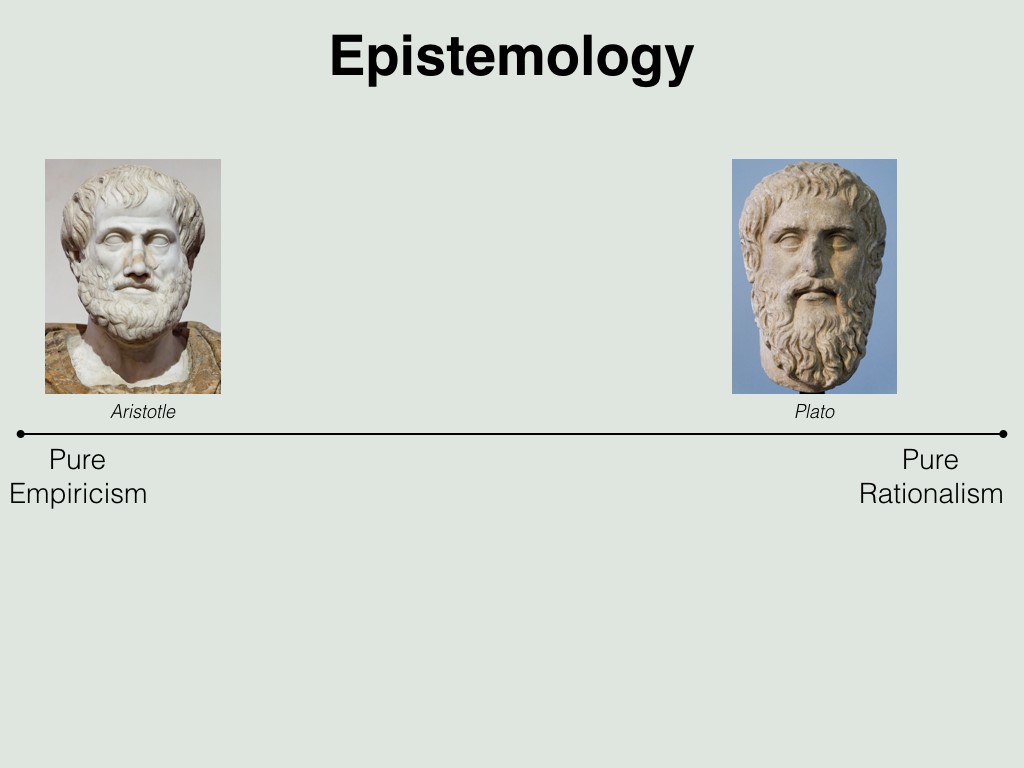Table of Contents |
When attempting to gain an overview of Aristotle's work, it is helpful to think of him as, first and foremost, a biologist. Though not all of Aristotle’s writings have been preserved, he wrote twice as much on biology as he did on philosophy (and he wrote a lot on philosophy). That is not to say that all of his philosophical questions have been answered in terms of biology, but it does help us to understand his perspective.
Aristotle took a “hands on” approach to the search for knowledge.
In philosophy, Aristotle began his investigations with specific knowns (i.e., examples found in the world). When Aristotle wanted to understand goodness he began by researching past approaches to ethics (i.e., accounts of goodness) to determine whether they were satisfactory, before developing a system of his own.
Aristotle can be credited with the invention of academic research. The school he founded—the Lyceum—became a repository of knowledge. When his research led him to conclude that existing accounts were unsatisfactory, he developed an account of his own. When he did so, Aristotle used a known (i.e., something he knew could be, or was, true), as the starting point for his inquiry. If we want to know about the human essence, Aristotle's research method directs us to begin with individual humans rather than an abstract Form of Humanity. Aristotle held that starting with the known world (i.e., the one we encounter through our senses) rather than an abstract realm of metaphysics, was the best way to begin a philosophical inquiry.
When attempting to gain an understanding of Aristotle's approach and accomplishments, it may be helpful to consider two later epistemological viewpoints: empiricism and rationalism. These two perspectives are distinguished by their identification of the source of knowledge.
Empiricism is the epistemological view based on the claim that all knowledge is grounded in experience.
Note the “grounded” qualification included in this definition. Empiricists do not claim that everything one can conceive of must have been experienced by that person. For example, a person does not have to have seen a golden mountain in order to refer to, or think about, one. He or she only needs ideas of "gold" and "mountain" to combine. Empiricism maintains that all of our building blocks come from experience and that those building blocks can be combined into ideas we have not experienced. This epistemological viewpoint is contrasted with rationalism:
Rationalism is the epistemological view based on the claim that humans can access certain conceptual truths independent of experience.
It is important to understand that rationalism is not the opposite of empiricism. Empiricism maintains that knowledge only comes from the senses. That does not mean, however, that rationalism denies that the senses are a source of knowledge. Instead, rationalism denies that knowledge only comes from the senses. Empiricism claims that there is one source of knowledge. Rationalism asserts that there are two.
Empiricism and rationalism are in agreement on most issues. Rationalists grant all of the empirical truths of the sciences learned through experience, all knowledge of the senses, etc. The area of disagreement is mostly involved with concepts—but not all concepts. For example, empiricism and rationalism both grant that human minds have the power of abstraction. Humans can conceive and discuss a concept of horse derived from individual horses. What kind of concept, then, does the rationalist propose as knowable, independent of experience? The primary area of digression involves large metaphysical concepts about causation. Many rationalists hold that claims like “nothing comes into existence un-caused” are conceptual truths that must be true independent of experience. However, empiricists maintain that this is something that is known only through experience.
The following example provides only a rough overview of these distinctions, but if we think of epistemology as a scale, with pure empiricism at one end and pure rationalism at the other, we can place Aristotle very close to the empiricism end of the scale, and Plato close to the rationalist end.

Aristotle’s scientific approach is primarily empirical. He maintained that we learn about humanity by abstracting from particular humans. This is what we would expect from a biologist. Plato, however, frequently appealed to a realm of pure intellect, known as Platonic Heaven, where the Forms reside. Recall that the Forms are analogous to mathematical objects or entities. Plato, in some of his writings, implied that we may learn about the Forms in between lives and later recollect them, or access them through pure philosophical reasoning. Either of these methods, as a result of the topics involved, are unsatisfactory to empiricists. Empiricists don’t object to mathematical entities but do not accept mathematical entities that interact causally with the world.
Raphael di Santi captured the contrast of approaches between Plato and Aristotle in his painting, The School of Athens.

The painting depicts a number of Greek philosophers, each of them engaged in an activity related to their philosophy and/or life. Take a look at the two figures in the middle of the painting.

On the left is Plato, pointing to the heavens. Aristotle, on the right, gestures at the ground (trying to bring Plato down to earth). This indicates the fundamental difference in their approaches to learning. For Plato, inquiry begins in the metaphysical realm of the Forms. Aristotle's approach begins with the world around him.
Source: This tutorial was authored by Sophia Learning. Please see our Terms of Use.